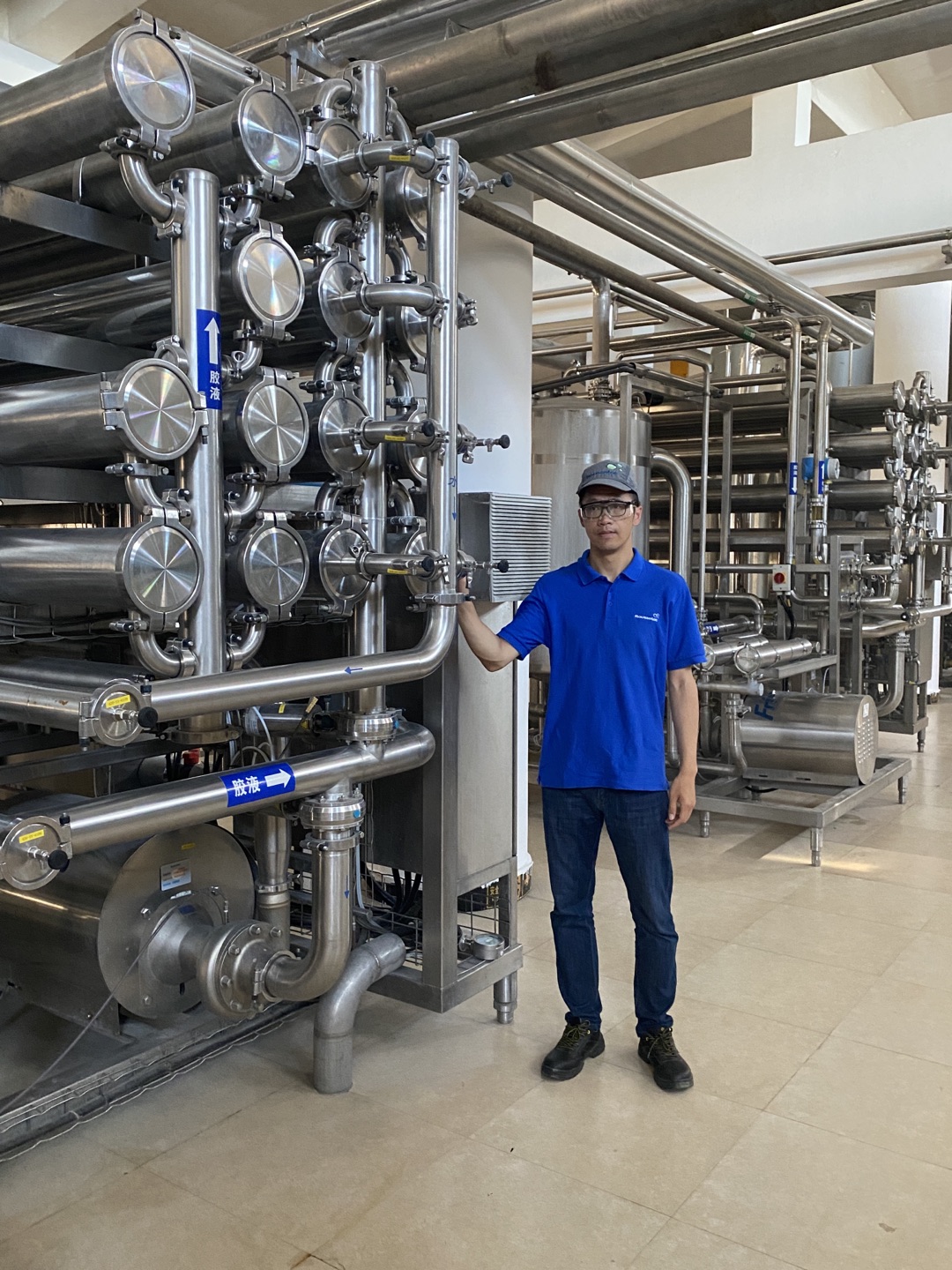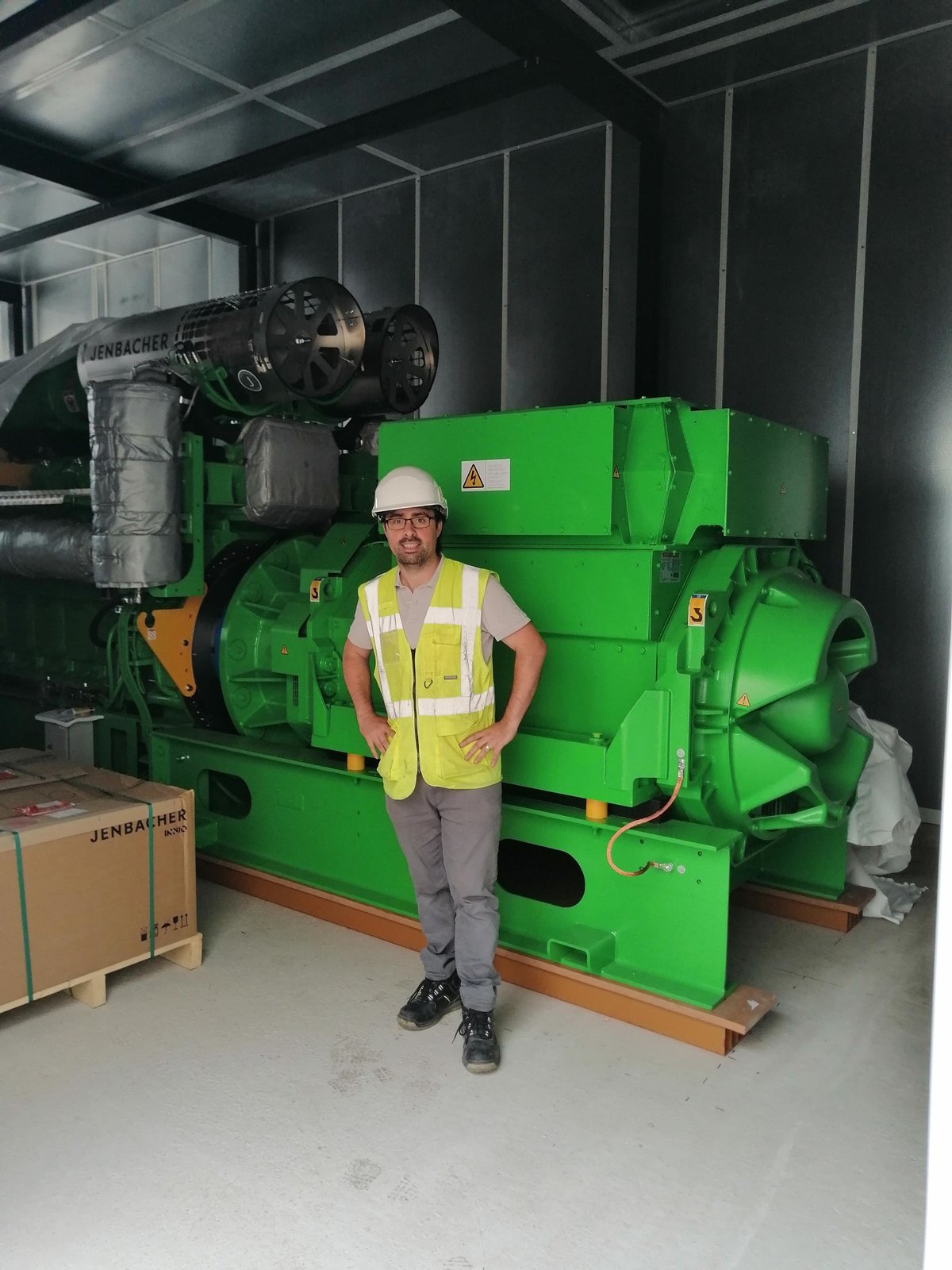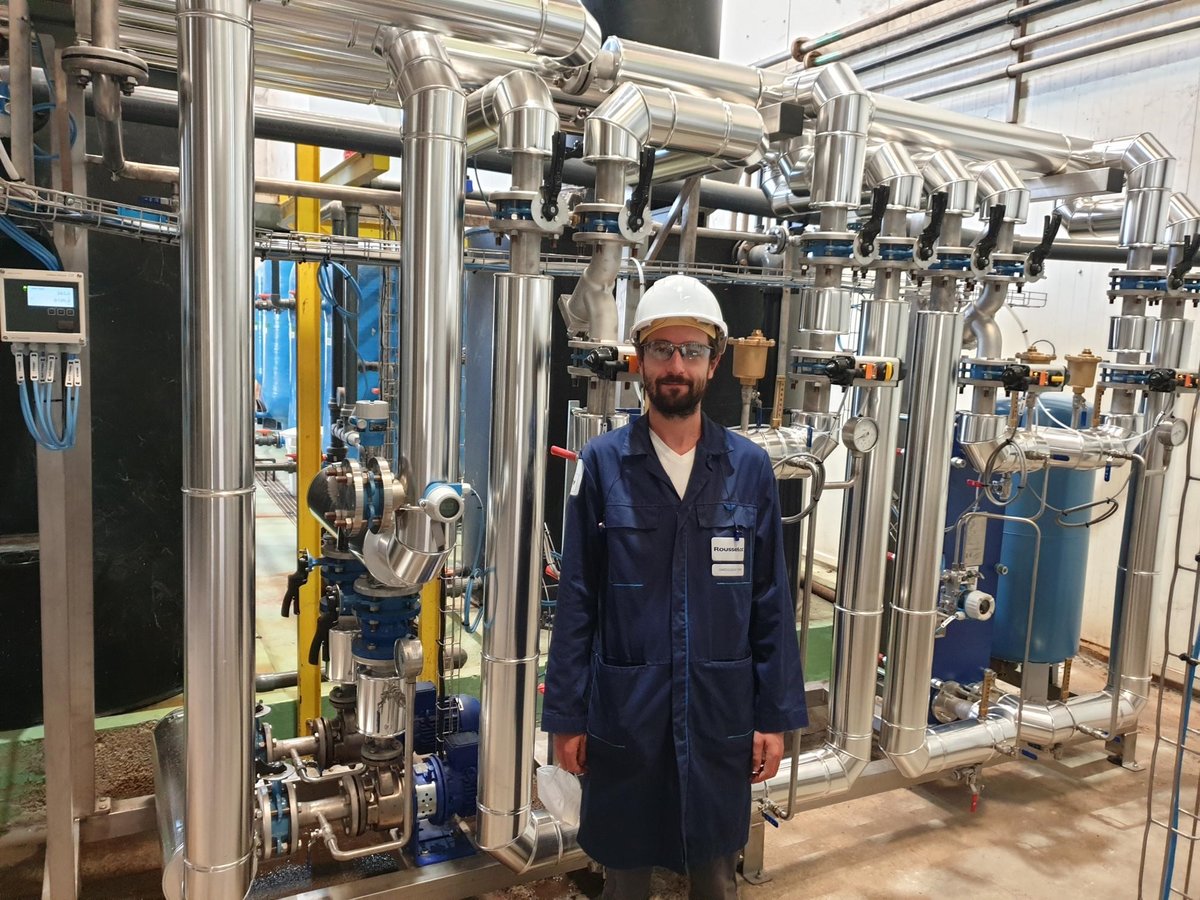To help transition to a greener future, Rousselot is developing and implementing numerous energy-related projects to help reduce the carbon footprint of our operations.
1. Adopting ultrafiltration and nanofiltration technologies in Europe and China
In the gelatin industry, ultrafiltration & nanofiltration are technologies commonly used to separate components from liquids after the gelatin extraction process. Ultrafiltration is an effective pretreatment before nano-filtration to remove water and ions. Nanofiltration is used to further increase the concentration and purity of the gelatin solution before the “Finisher” (high concentration) step. Both technologies help produce gelatin of higher purity.
Ultrafiltration & nanofiltration have already been implemented at several of our plants in Europe, including Ghent (Belgium), Girona (Spain) and Angoulême (France). In China, two of our three Rousselot plants (Da’an and Kaiping) are equipped with ultrafiltration and nanofiltration technologies. The third plant (Wenzhou) will be upgraded with these technologies in Q1 2023.
How do ultrafiltration and nanofiltration technologies save energy?
Traditionally, in gelatin production, water is evaporated after the extraction process. The evaporation phase requires heat, which costs a large amount of energy. Ultrafiltration and nanofiltration technologies help to reduce the evaporation time and the related energy need, as they contribute to the progressive concentration of gelatin solutions.
By integrating ultrafiltration and nanofiltration technologies, Rousselot is reducing the energy needed for evaporation, while reducing CO2 emissions. We estimate these upgrades can lead to a reduction of emissions of approximately 5,000 tons per year.

By adopting ultrafiltration and nanofiltration technologies, Rousselot China is moving toward more energy-efficient production. This is just of one of many ways we are advancing toward a sustainable, eco-friendly future.
Paul Li
Production Manager, Rousselot Wenzhou
What does 1 ton of CO2 equal to?
1 ton of CO2 equals…
- 1 round trips between Paris and New York by plane
- 14,000 km of urban driving with a small car
- 4,300 kWh of electricity
And for the capture of 1 ton of CO2 emissions...
- 50 trees must grow for one year
2. Cogeneration in Ghent, Belgium
At Rousselot Ghent, a new cogeneration system will be installed in Q4 2022. Cogeneration means using a single source of energy, whether fossil or renewable, to produce both electricity and heat. Unlike traditional electricity production, in which heat is released and often wasted, cogeneration allows for heat to be captured and used for heating, or integrated into the production process. This eliminates waste and reduces the energy need. Our new natural gas-fired Combined Heat & Power (CHP) engine will enable the Ghent plant to produce both electricity and steam to power our production process. This will improve the energy efficiency of the Ghent plant and potentially reduce CO2 emissions by approximately 2,500 tons per year.

Our new cogeneration system in Ghent will drastically reduce energy waste. By using the energy and steam it produces in our production process, we can greatly improve our energy efficiency.
Javier Noval Llano
Engineering Manager, Rousselot Ghent
3. New boiler economizer in Isle Sur la Sorgue, France
In 2022, Rousselot Isle Sur la Sorgue (ISS) installed a boiler economizer, after a successful pilot at Rousselot in Brazil. Designed to reduce excess steam in the boiler system, this project is expected to reduce the gas consumption, and CO2 emissions by about 2,000 tons per year. Similar projects are planned for other plants with the goal of achieving higher efficiency levels globally.

Because of the increasing pressure on the energy market, completing this project on time was critical. The hard work put in by the ISS team and our external contractors allowed us to meet a challenging schedule.
Yann Gabouleaud
Process Engineer, Rousselot Isle Sur la Sorgue
Towards a more energy-efficient future
The three projects in this article illustrate our efforts at Rousselot to reduce energy consumption and greenhouse gas emissions, while ensuring reliable production processes. They show how science, innovation, and continuous operational improvement are helping us to play our part in moving toward a sustainable future.
Supported by the French Government
The French government’s ‘France Relance’ recovery plan, launched in 2020 and aimed at accelerating the country’s transition to carbon neutrality, helps manufacturers in all sectors to modernize their tools and processes for more energy efficiency. The ISS project met the strict eligibility criteria of this plan and was financially supported by the French government.
